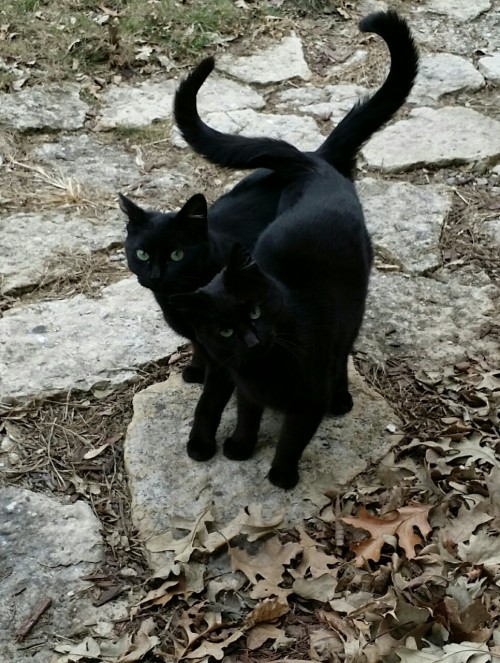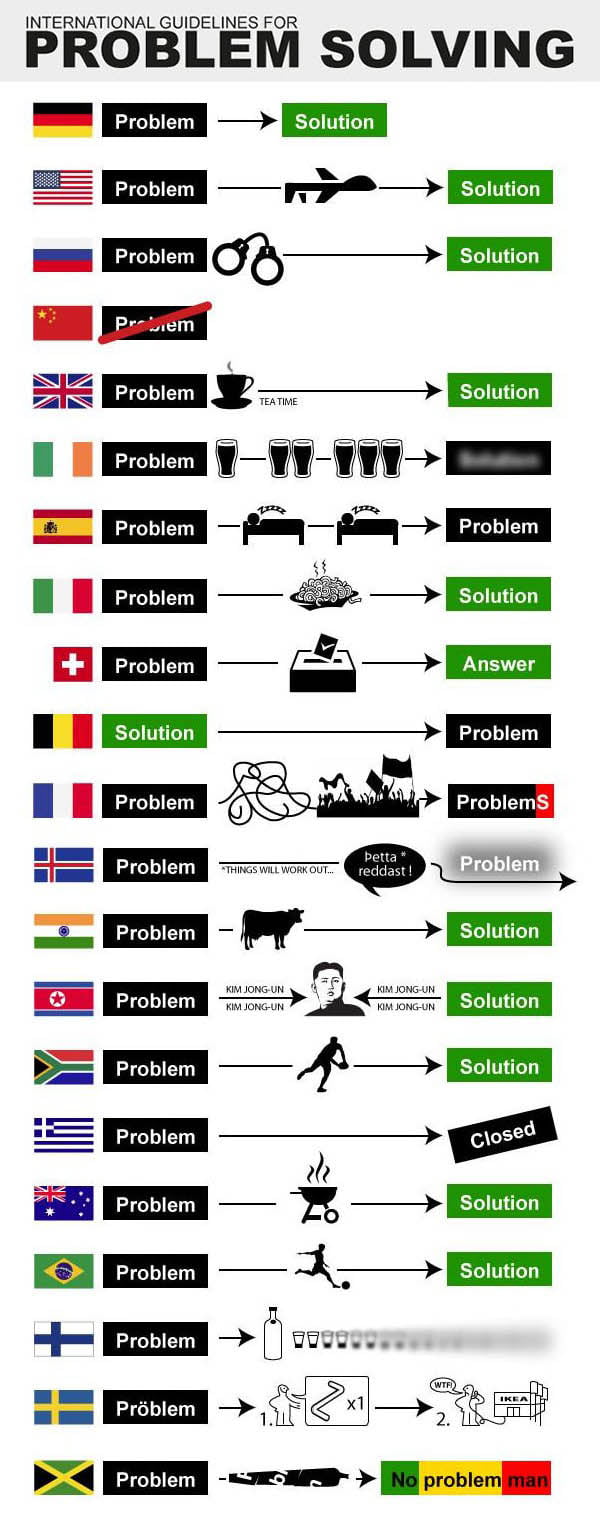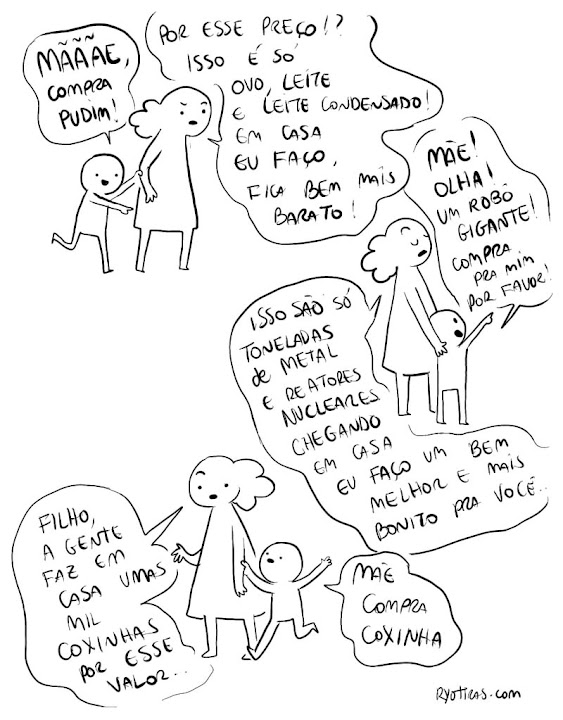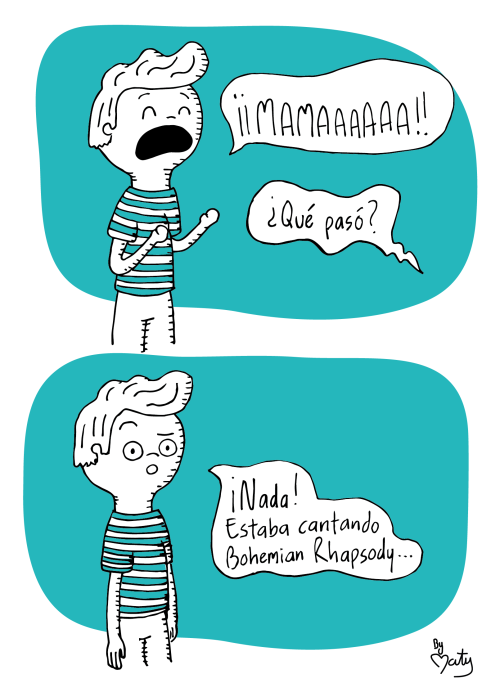Nick Fury: This year I lost one of my best agents, Phil Coulson.
Phil Coulson: (from the other side of the Helicarrier) QUIT TELLING THE AVENGERS I'M DEAD!
Nick Fury: Sometimes I can still hear the motherfucker's voice.
Osias Jota
Shared posts
05 Sep 14:56
RT @jornalextra: Oi? Foragido por roubo é preso na Lapa e tenta enganar PMs se dizendo irmão de Ben Affleck
extra.globo.com/casos-de-polic… http://…
RT @jornalextra: Oi? Foragido por roubo é preso na Lapa e tenta enganar PMs se dizendo...
by Pai Osias

|
|
05 Sep 14:56
RT @whatifitis: O que mais me intriga no poliamor é onde/como vocês encontram mais de uma pessoa desejável e disponível para um relacioname…
RT @whatifitis: O que mais me intriga no poliamor é onde/como vocês encontram mais...
by Pai Osias

|
|
05 Sep 14:29
O que aconteceu com o termo "nerd" aconteceu exatamente igual com o termo "evangélico". E só serve pra me fazer passar vergonha.
O que aconteceu com o termo "nerd" aconteceu exatamente igual com o termo "evangélico"....
by Pai Osias

|
|
04 Sep 13:33
RT @DoodleDamage: this is probably 100% true http://t.co/CRFy2dbYYR
RT @DoodleDamage: this is probably 100% true http://t.co/CRFy2dbYYR
by Pai Osias

|
|
04 Sep 02:10
RT @GeorgeTakei: A 25 year old Brazilian mayor was caught running her town remotely via What'sApp. That's what you call phoning it in.
RT @GeorgeTakei: A 25 year old Brazilian mayor was caught running her town remotely...
by Pai Osias

|
|
Rosalind, Cary Renquist likes this
04 Sep 02:10
RT @LaurieofMars: So proud of my Dad -- see his gorgeous image on @NASA's APOD! Taken from his home observatory. apod.nasa.gov/apod/astropix.… htt…
RT @LaurieofMars: So proud of my Dad -- see his gorgeous image on @NASA's APOD! Taken...
by Pai Osias

|
|
03 Sep 19:49
RT @NaoKahlo: Geisy Arruda foi expulsa da faculdade por um vestido curto. Um estudante...
by Pai Osias
03 Sep 15:31
RT @mccrabb_will: The details in FURY ROAD are myriad.
Note that the Five Wives' message is written around the design of sperm. http://t.…
RT @mccrabb_will: The details in FURY ROAD are myriad. Note that the Five Wives'...
by Pai Osias

|
|
Rosalind, Sophianotloren likes this
02 Sep 23:25
RT @brunafeia: Ana Maria Braga explicando pra senhora dona de casa o que é falsiane. Esta mulher luta por um mundo mais igualitário
RT @brunafeia: Ana Maria Braga explicando pra senhora dona de casa o que é falsiane....
by Pai Osias

|
|
Lori likes this
02 Sep 17:54
Fez o sol, a mata e a terra, uniu os caboclos, rebaixou Plutão
Fez o sol, a mata e a terra, uniu os caboclos, rebaixou Plutão
by Pai Osias

|
|
01 Sep 23:04
RT @marimessias: É exatamente assim, sério http://t.co/aXLDb6JAX6
RT @marimessias: É exatamente assim, sério http://t.co/aXLDb6JAX6
by Pai Osias

|
|
01 Sep 23:04
RT @joaoluisjr: "Idris Elba is ‘too street’ to play 007, says James Bond author"
"too street" is the new black
RT @joaoluisjr: "Idris Elba is ‘too street’ to play 007, says James Bond author" "too...
by Pai Osias

|
|
30 Aug 23:09

Regarding Trans* and Transgenderism
by -julia
Osias Jota100%
Last year, in the second half of my piece A Personal History of the “T-word” (and some more general reflections on language and activism), I described what I call the activist language merry-go-round. Here’s how it works: Because trans people are highly stigmatized and face undue scrutiny in our culture, all of the language associated with us will face similar stigma and scrutiny. At some point, every single trans-related term will be called out as “problematic” for some reason or another—e.g., its origin, history, aesthetic quality (or lack thereof), literal meaning, alternate definitions, potential misinterpretations or connotations, or occasional exclusionary or defamatory usage. And supposedly more liberatory or inclusive alternative terms will gain favor. But over time, these new terms will eventually be challenged too. Because the crux of the problem is not the words themselves, but rather the negative or narrow views of trans people that ultimately influence how these words are viewed and used by others.
So rather than constantly trying to eliminate certain words and inventing new replacement terms, I argue that we would be best off challenging the narrow or negative views of trans people that sometimes latch themselves onto trans terminology. That is a brief synopsis of the activist language merry-go-round; I encourage you to read the linked-to essay above, as I make my case far more thoughtfully and thoroughly there than I have in these two paragraphs.
The reason why I am bringing this up now is because I want to share some of my personal thoughts regarding the terms trans* and transgenderism, both of which have come under activist-language-merry-go-round scrutiny lately.
Trans*
Since the 1990’s, the words “transgender” and “trans” have been the most often used broad umbrella terms to refer to people who defy societal norms with regards to gender. But on many occasions over the years, some people have objected to them. For instance, I’ve heard some transsexuals object to “transgender” because it was previously favored by Virginia Prince to distinguish herself from transsexuals (even though that is not how most people use the word today). And some non-binary folks have told me that they don't like “trans” because they feel it is too closely associated with transsexuals who identify within the binary (e.g., when it is used in the phrases “trans woman” or “trans men”).
In attempts to be inclusive of people who dislike these labels for one reason or another, trans activists (including myself) sometimes turn to alternate umbrella terms, the most common ones being “gender non-conforming” and “gender variant.” But of course there have been complaints about these terms as well (e.g., too clunky, too vague, seems to favor some identities over others, objections to being called “variant” or “non-conforming”). Again, it’s not that any of these terms are inherently better or worse than others—they can all be used in a respectful and inclusive manner. It’s just that there is no perfect word: Every term will have its detractors, and so long as trans people are stigmatized in our culture, some people will use these terms in disparaging or exclusionary ways.
Over the last few years, trans* has become the new umbrella term du jour. The way it was told to me, the asterisk is intended to serve the same “wild card” function that it does in search engines—thus, trans* would include trans, transgender, transsexual, transvestite, and so on. While I had seen the term used on a few occasions in the past, starting around 2013 (and seemingly out of the blue), it was practically everywhere: in articles and trans-themed glossaries, in the names of organizations and events, and so on. Being interested in trans terminology, I was curious as to how this came to be. Perhaps there was some blog-post or manifesto out there that galvanized the community to start using the word? I never did find out, in part, because doing searches for trans* is complicated by the fact that search engines view the asterisk as a wild card!
While I have no problems with the term trans*, I did dislike some of the dynamics that accompanied it during its rise in popularity. Specifically, I’m talking about a phenomenon that I’ve seen play out before in other marginalized communities, and I’ve come to call it word-sabotage (to contrast it with word-elimination). Here is what I mean: When activists say “don’t use the word tranny,” or “it’s transgender, not transgendered,” that is an explicit word-elimination campaign, one that directly states that the word in question (e.g., tranny, transgendered) is bad and should not be used. Word-sabotage is indirect, as it insinuates that certain terms are suspect or problematic on the basis that they are supposedly not as liberatory or inclusive as the term being championed. I have encountered this on many occasions within BMNOPPQ communities, were some people prefer to call themselves pansexual, or multisexual, or polysexual, rather than bisexual. And this is totally fine—people are free to self-identify however they like. However, sometimes people will claim that they have chosen their preferred label because it is supposedly more liberatory or inclusive than bisexual. This latter case is an example of word-sabotage, because now people who identify as bisexual and who use that term in an inclusive manner (such as me) are now presumed to be conservative and exclusionary.
On a number of occasions, I saw this sort of word-sabotage come into play with the popularization of trans*: Because many people viewed the asterisk as imparting broad inclusion, suddenly the use of the terms transgender and trans sans asterisk—which I have used in a broad inclusive manner for well over a decade—would sometimes be questioned, or might be interpreted as promoting exclusion.
It is rather surreal to have the language you have long used as part of your activism shift in meaning or connotation so quickly. But the activist language merry-go-round keeps on spinning, so of course the inevitable happened: People started critiquing trans*.
The first such complaint that I heard was from a trans woman who felt that the asterisk seemed to suggest that being trans is illegitimate—the example she offered was how asterisks are used in sports statistics to imply that a particular record is not legitimate for some reason. I suppose that somebody somewhere out there has probably complained about how asterisks are often used for footnotes, thereby insinuating that trans people are merely footnotes rather than part of the main text! I am joking a bit here, but these sorts of literal interpretations of words are often invoked in word-elimination attempts (e.g., “I don’t like the word ‘transsexual’ because it has the word ‘sexual’ in it”). In general, people don’t read words literally—they get their meanings from how they are used in everyday conversation. However, when it’s a term associated with a marginalized group, then people will tend to pick it apart in this manner, and in countless other ways.
In the last few months, I have become aware of a new claim: Trans* is apparently trans-misogynistic. I am not sure where this originated, but it seems to have garnered steam (a recent google search using “asterisk” and “transmisogyny” revealed numerous pages of results to this effect). According to a recent post by Tobi Hill-Meyer (that I encourage you to check out), she summarizes the current arguments being made against trans* this way: “that female assigned genderqueers popularized it as a way to prioritize their issues at the expense of trans women.” But she then goes on to talk about many previous incarnations of the trans* in “2010, 2007, 2003, and 1998” when it was forwarded by trans women to circumvent “transsexual vs. transgender” infighting that was occurring in those settings at that time. The last paragraph of her post really resonated with me:
I'm not really invested in whether or not people use [trans*]. I don't feel it's important enough to fight over. But seeing the way people talk about it now makes me sad that the trans community seems to have a historical memory permanently limited to only 2-4 years back.
The word trans* is not inherently inclusive or trans-misogynistic. Rather, like all words, it gets its meaning from the way in which people use it. And it may be utilized towards positive or negative ends. Just because some people may use it in an exclusionary way doesn’t mean that the word itself disparaging or exclusionary.
Transgenderism
The word transgenderism has been around for as long as I have been aware of transgender activism. It appeared in the titles of explicitly trans activist books such as Patrick Califia’s 1997 book Sex Changes: The Politics of Transgenderism, and the 2003 anthology Bisexuality and Transgenderism: InterSEXions of the Others. It appears in Kate Bornstein’s Gender Outlaw, Leslie Feinberg’s Trans Liberation, and countless other trans activist books, including Whipping Girl—most notably in the chapter “Coming to Terms with Transgenderism and Transsexuality.”
In all of these cases, the word “transgenderism” was used in a neutral manner to denote one of two things: the phenomenon of transgender people (our existence and our experiences), or the state of being transgender (e.g., I might talk about my own transgenderism). It is very common in English to use the suffixes “-ity” and “-ism” to create nouns that describe a phenomenon or state of being—for example, I might talk about my curiosity or intellectualism. So transsexuality and transgenderism are linguistically akin to those examples, and to me talking about my bisexuality, or discussing the subject of lesbianism more generally.
Prior to the last two years, I would (on rare occasions) hear complaints that transgenderism sounded like jargon or was too academic. Admittedly, it is not an “everyday conversation” word, but it does sometimes come in handy when one is writing about gender variant people and experiences (e.g., transgenderism throughout history, or people’s differing experiences with transgenderism). I have heard people presume that transgenderism has its origins in psychiatric/sexology discourses, the implication being that this would automatically make the word problematic. While I haven’t been able to confirm its first usage, I have doubts that this is necessarily the case. “Transgender” itself was a community term (not a psychiatric/sexology one), so it seems likely that the first usage of “transgenderism” would come from within the community, or at least from someone who was aware of and respectful toward trans perspectives. But even if it did originate in psychiatric/sexology discourses, this (in and of itself) wouldn’t disqualify its usage, as many other terms that trans people use all the time (e.g., transsexual, FTM/MTF, dysphoria, SRS) had similar origins. Indeed, the first known usage of cis terminology occurred in a 1914 German sexology article—I certainly do not think that we should stop using it for that reason.
So anyway, transgenderism has a long history of being used in a nonjudgmental and neutral manner, often by trans people themselves. But then, in the last couple years, some TERFs (trans-exclusive radical feminists) have purposefully misappropriated it in a way that confuses the state of being transgender with a potentially dangerous political ideology. This tactic is most obvious in Sheila Jeffreys’ 2014 book Gender Hurts: A Feminist Analysis of the Politics of Transgenderism. And it was repeated in last year’s Michelle Goldberg “faux journalism” article “What Is a Woman? The dispute between radical feminism and transgenderism.” Both of these subtitles compare apples to oranges—transgenderism is a naturally occurring phenomenon, not a political ideology—and both subtitles would have been more accurate had they pitted trans-exclusionary radical feminism against transgender activism (which is an actual ongoing political/ideological debate). This incorrect usage seems to purposefully capitalize on the fact that transgenderism is not an everyday word (so it will strike trans-unaware readers as somewhat alien) and seems intended to invoke certain oppressive ideologies (e.g., sexism, racism, fascism, and others) that also just so happen to end with the suffix “-ism.”
Jeffreys’ and Goldberg’s subtitles most certainly should be critiqued for insinuating that the existence of transgender people and the state of being transgender (i.e., transgenderism) is merely an oppressive political ideology. But sadly, it is so much easier to destroy words than to save them. So unsurprisingly I suppose, in the wake of Jeffreys’ book and Goldberg’s article, a word-elimination campaign against transgenderism began to pick up speed.
The most common complaint in this campaign against transgenderism centers on statements like “transgender people are not an ‘ism’.” But as I said earlier, “isms” aren’t always ideologies—many of them (e.g., magnetism, metabolism, hypothyroidism, lesbianism, transgenderism) are simply naturally occurring phenomena. Plus, not all ideological “isms” are bad or dangerous—for instance, I personally think that feminism (as a whole) is a positive and beneficial thing. If the subtitle to Jeffreys’ book was “A Feminist Analysis of the Politics of Transgender Activism” (as would be more appropriate), would we be calling for a ban of the phrase “transgender activism” because it implies that transgender people are associated with an "ism"?
The other meme I’ve heard on multiple occasions in this recent word-elimination campaign is that trans people have never accepted or have always rejected the term transgenderism. Such statements are utterly ahistorical: As I’ve detailed above, the word has been used by trans activists (including myself) in a nonjudgmental and neutral manner for over two decades. What is new is that the term is now being misused by TERFs. And even if you do not personally like the word transgenderism (which is absolutely your right), you can probably recognize that it would be an extremely counterproductive strategy to surrender trans-related words to our enemies (whether they be TERFs, conservative political forces, etc.) as soon as they start misappropriating them. To take another example: Jeffreys and others misuse and abuse the word transgender in all sorts of ways (e.g., “transgendering,” “transgenders”), so does that mean that we should eliminate that word as well? And what would the ramifications of that be?
An alternative to sabotaging and eliminating words
I didn’t write this essay to tell others what words they should or should not use. And I am fine with trans-related language gradually evolving over time. But I do wish that we (transgender/trans/trans* folks) would think more about the long-term ramifications before engaging in word-sabotage (e.g., trans* is the most inclusive, so therefore trans sans asterisk is exclusionary) and word-elimination (e.g., transgenderism is a slur, and trans* is inherently trans-misogynistic, so therefore we should all stop using these words). As I have shown, such arguments are arbitrary and ahistorical, as words are often used by different people in different ways, and may take on positive, negative, or neutral connotations depending on the context.
But more importantly, the people who use trans-related terminology the most (by far!) are other transgender/trans/trans* folks. And whether intentional or not, attempts to undermine some specific trans-related term will have the effect of undermining those transgender/trans/trans* individuals who use that term in their activism and/or to describe their experiences.
It is really easy to condemn a word: to take offense when people say it, to tell others it is disparaging or exclusionary, and that they should not use it. But it is not the only path (or even the best path) moving forward. Perhaps instead, we could try saving words, by calling out the negative or narrow assumptions that sometimes latch themselves onto trans-related language. When someone uses a trans-related term in a disparaging or exclusionary way, perhaps we should challenge the misappropriation of that term, rather than surrendering or undermining the word itself. It is not the words themselves, but the negative assumptions and sentiments behind the words that are the problem—so perhaps they should be our primary target.
[note: If you appreciate this essay and want to see more like it, please check out my Patreon page]
[note: If you appreciate this essay and want to see more like it, please check out my Patreon page]
Cary Renquist, otters and one other like this
30 Aug 22:23
RT @ladyrasta: Essa história do @Joatan é triste e hilaria ao mesmo tempo http://t.co/075kBSeTRW
RT @ladyrasta: Essa história do @Joatan é triste e hilaria ao mesmo tempo http://t.co/075kBSeTRW
by Pai Osias

|
|
30 Aug 22:23
RT @arielfilipe: a gente tinha tudo pra dar certo mas vc demorou 2,3 segundos pra responder no whatsapp
RT @arielfilipe: a gente tinha tudo pra dar certo mas vc demorou 2,3 segundos pra...
by Pai Osias

|
|
30 Aug 01:39
RT @Ka_Bral: MAD MÔNICA - ESTLADA DA FÚLIA http://t.co/737q8HvdR5
RT @Ka_Bral: MAD MÔNICA - ESTLADA DA FÚLIA http://t.co/737q8HvdR5
by Pai Osias

|
|
baron, Albener Pessoa likes this
29 Aug 20:44
Retweeted Anna (@annaleticia_):
http://t.co/HjdZ3YN2eD fb.me/47S8v9401
Retweeted Anna (@annaleticia_): http://t.co/HjdZ3YN2eD http://t.co/xJq9AVerkc
by Pai Osias
Ir

|
|
Albener Pessoa likes this
28 Aug 14:48
![The less common, even worse outcome: "3: [everyone in the financial system] WOW, where did all my money just go?" The less common, even worse outcome: "3: [everyone in the financial system] WOW, where did all my money just go?"](http://imgs.xkcd.com/comics/engineer_syllogism.png)
Engineer Syllogism
shareando só por causa da tooltip! :)
![The less common, even worse outcome: "3: [everyone in the financial system] WOW, where did all my money just go?" The less common, even worse outcome: "3: [everyone in the financial system] WOW, where did all my money just go?"](http://imgs.xkcd.com/comics/engineer_syllogism.png)
Lori, Sophianotloren and -1 others like this

















